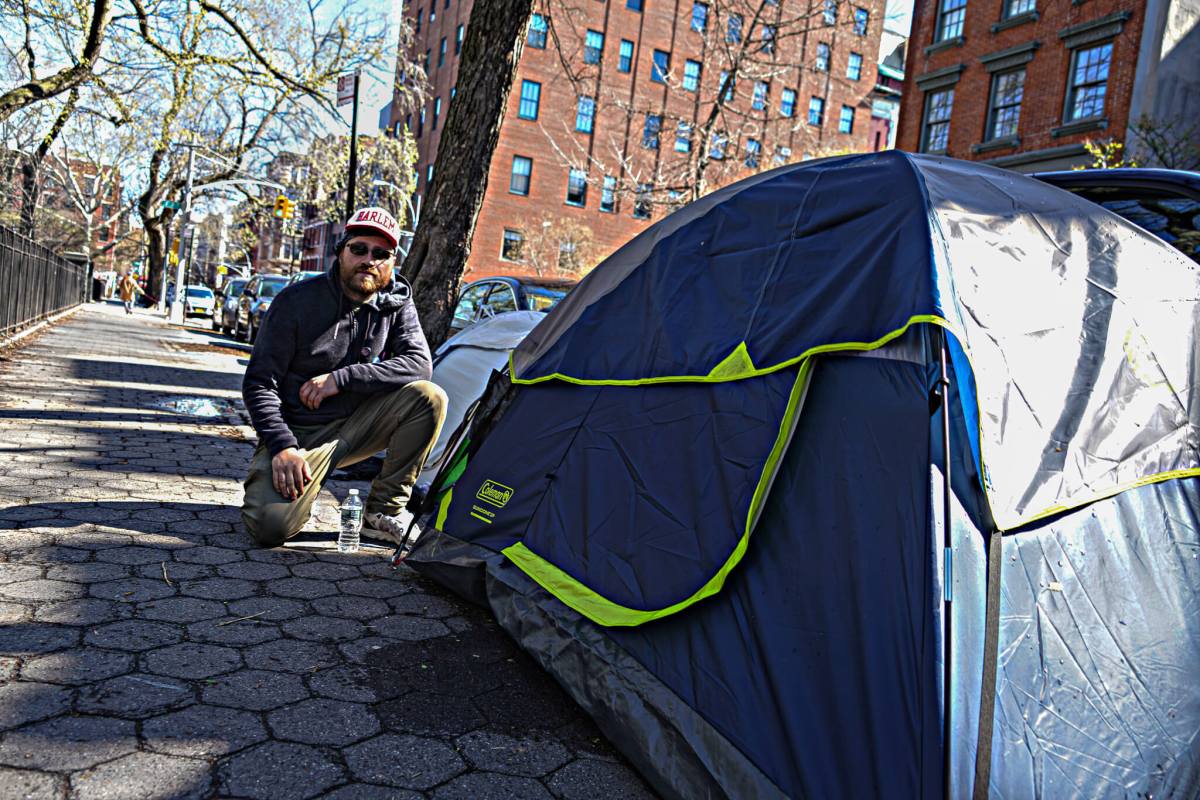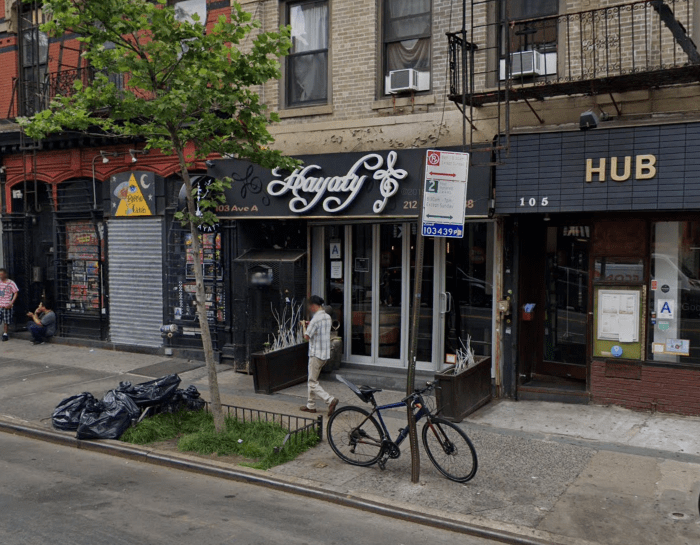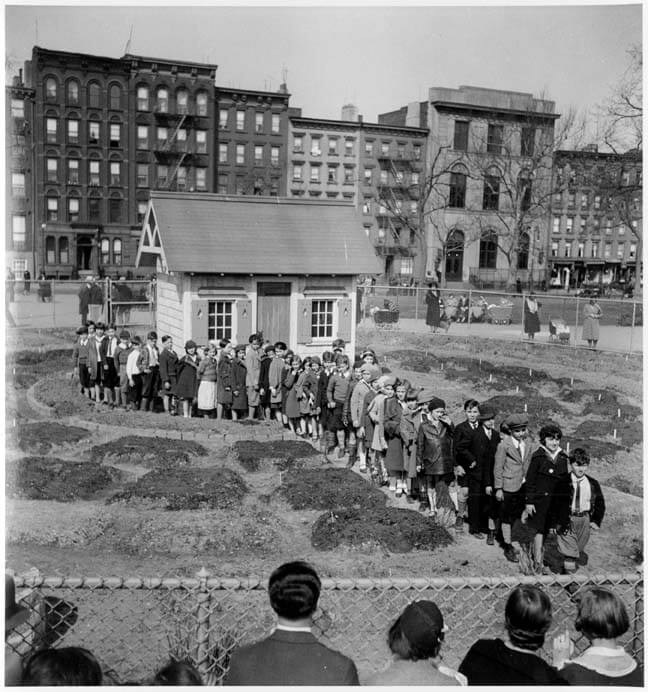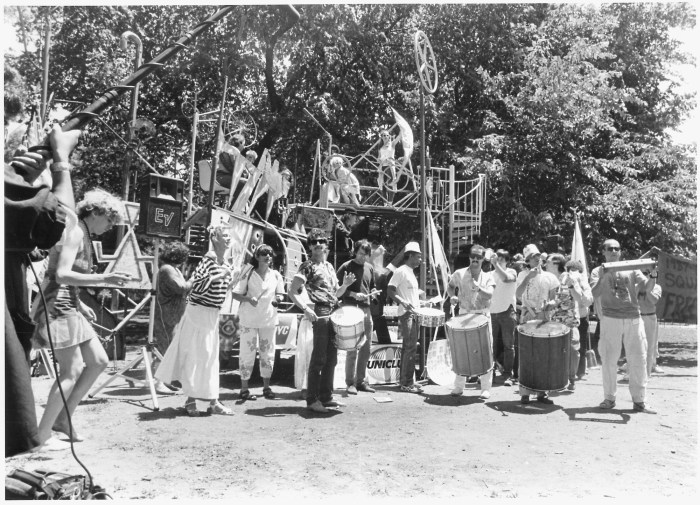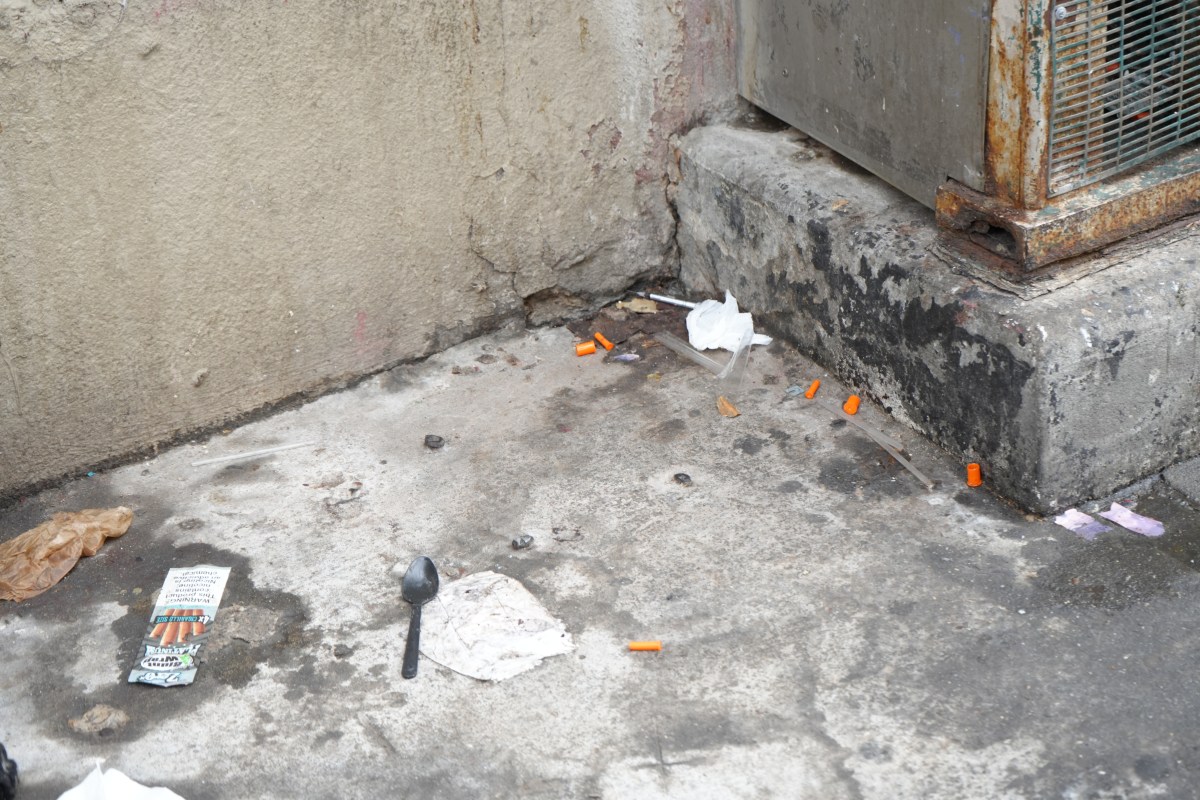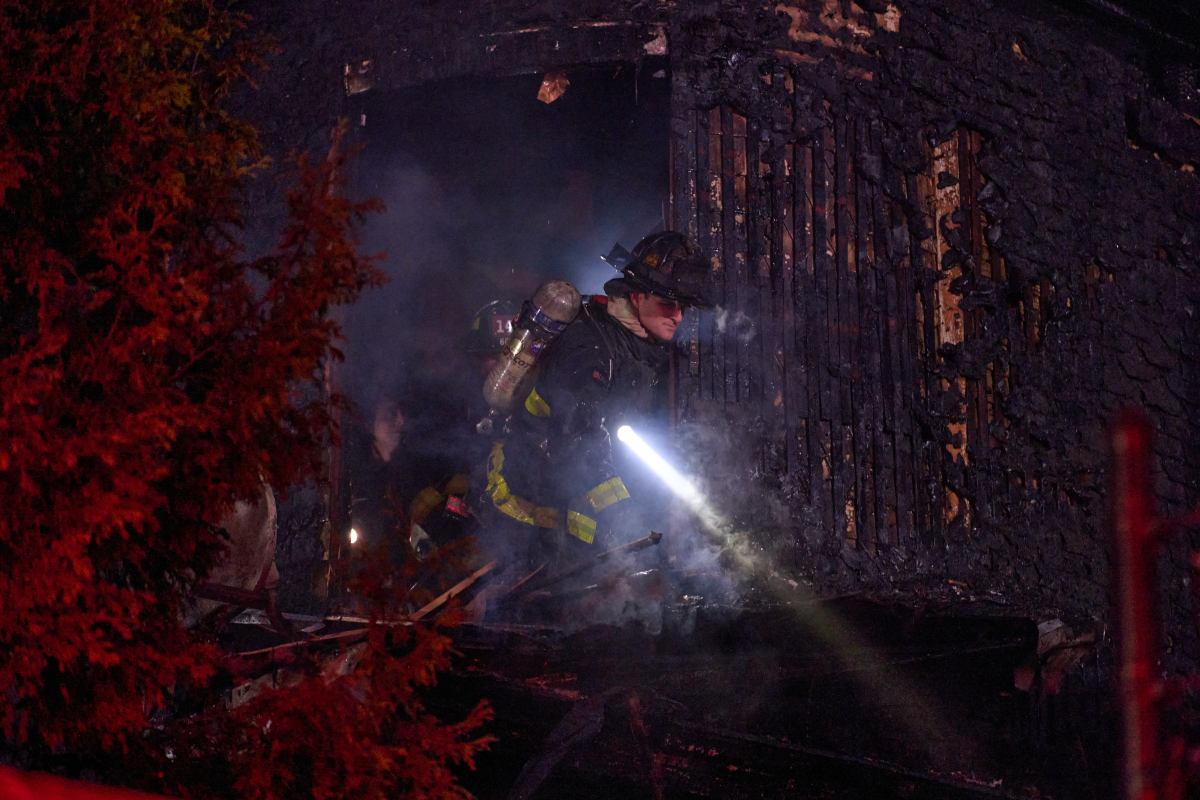When police and city officials came to break up their East Village encampment last week, the homeless residents of what they dubbed “Anarchy Row” lived up to their name, and refused to go without a fight.
The modest stretch of tents and their undomiciled inhabitants near the corner of East 9th Street and Avenue B were well known to the Tompkins Square Park crowd and were watched over by the adjacent Trinity Lower East Side Lutheran Parish, becoming more akin to neighbors.
However, in late March Mayor Eric Adams deemed it inhumane for New Yorkers to be camping in the streets whether that be inside tents or via self-constructed structures. This led to the highly controversial removal of homeless encampments all around the five boroughs, yet the majority of these sweeps were conducted without incident until April 6.
Joined by several East Village locals, tent occupants Johnny Grima and Sinthia Veev made a last stand that ended in a six-hour standoff and seven arrests. The tents were ultimately torn down but not before they made their message known: They are people too.
The April 6 act of defiance inspired many who read about the incident or saw it on television, and in doing so prompted supporters to donate several tents to those affected by the removal.
In a similar act of opposition, Anarchy Row has been re-erected in the same neighborhood, this time a little closer to Tompkins Square Park.
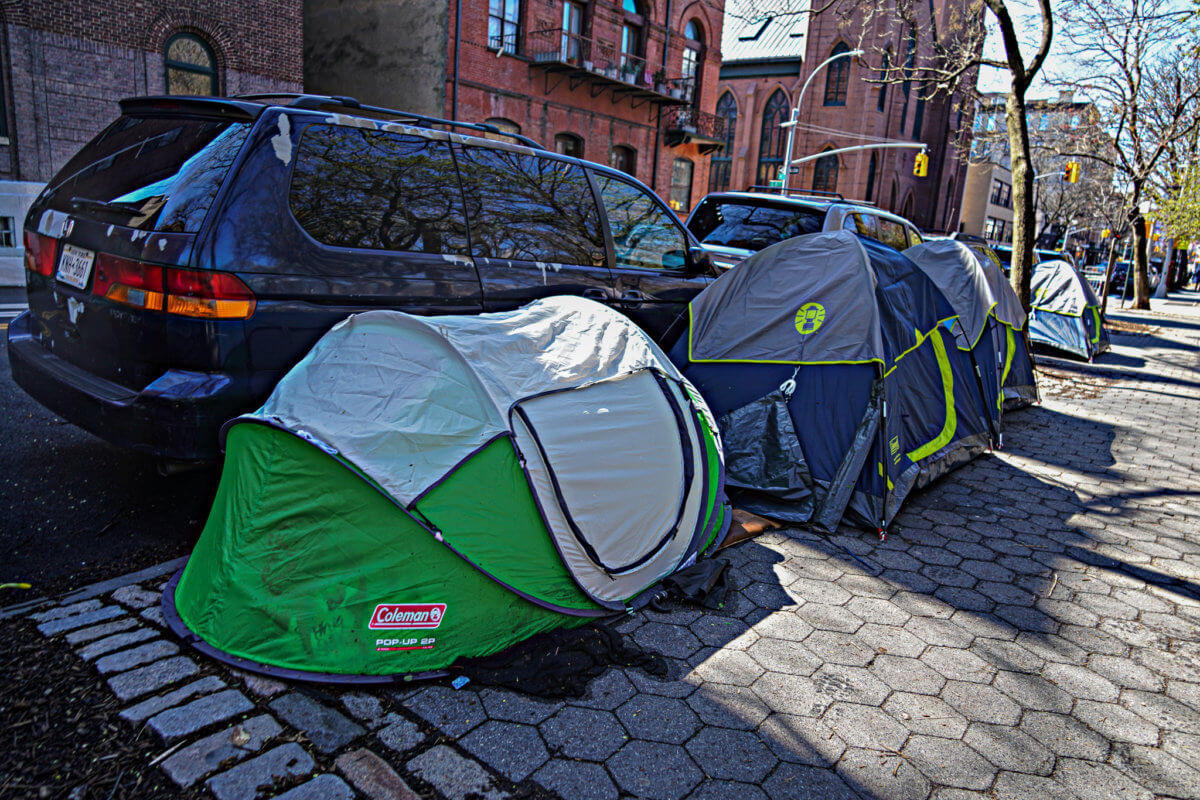
Johnny Grima was one of the seven arrested and although he is out of police custody and living on the street again, he says he found the experience rather traumatic.
“It was blown out of proportion by the NYPD. I don’t know… it was just insane,” Grima told amNewYork Metro. “I was pretty scared myself and they were trying to come into my tent to grab me out. I was trying to back away inside of the tent. They just like pounced on me, man, and I just remember like trying to wrap up inside the tent to protect myself. I was yelling for help, of course no one could help me, and yeah… it was a terrifying experience.”
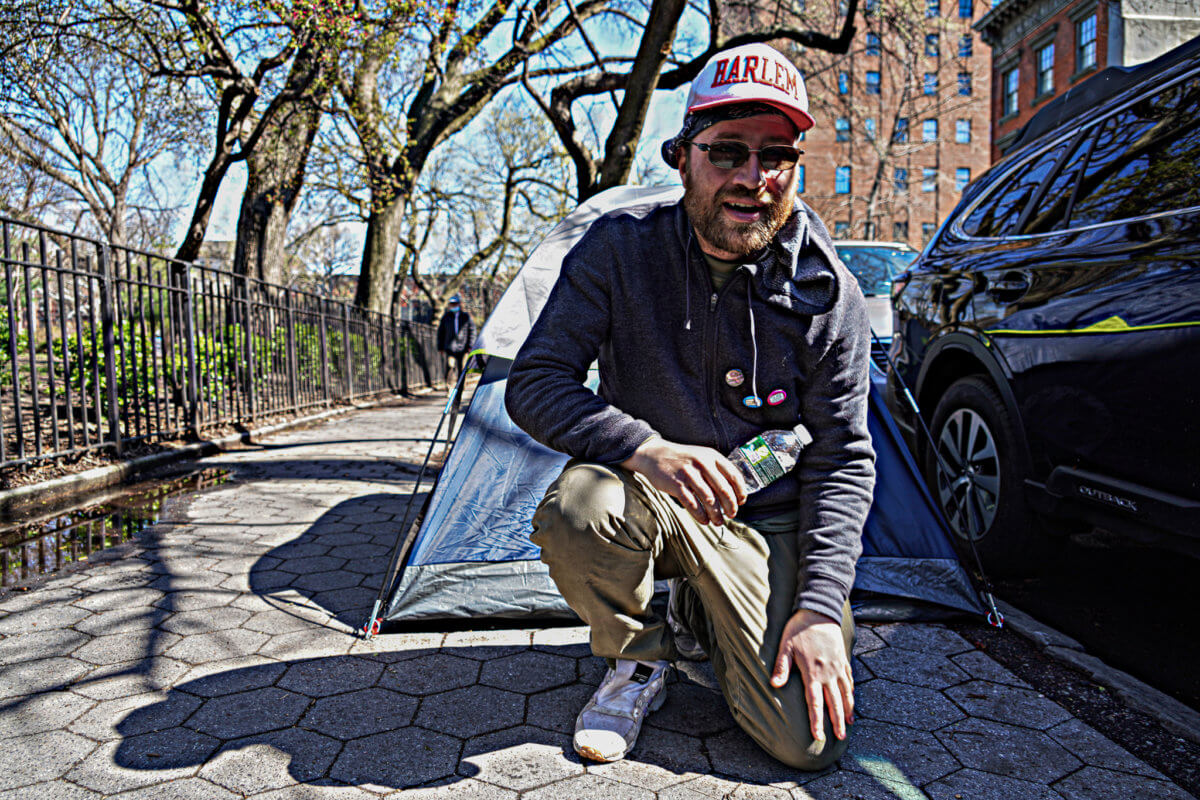
Grima refused shelter services prior to the arrest, stating that he is afraid of them.
“You know, I’ve been suffering. I’ve been suffering through this myself for a long time and even worse seeing what other people go through. So many people have mental health issues and it’s just like these are people who they prey on and keep in these places for multiple years and act like they’re helping them but they’re really not,” Grima explained.
Grima also said he was left bruised and traumatized when he was pulled from his tent, but he was not the only one.
Fellow resident of Anarchy Row Kevin pleaded with amNewYork on April 6 to take several of his belongings to Trinity Lower East Side Lutheran Parish in order to save them from being thrown into the back of a garbage truck.
Pastor William Kroeze not only gave Kevin’s belongings sanctuary, but he also sheltered Kevin himself.
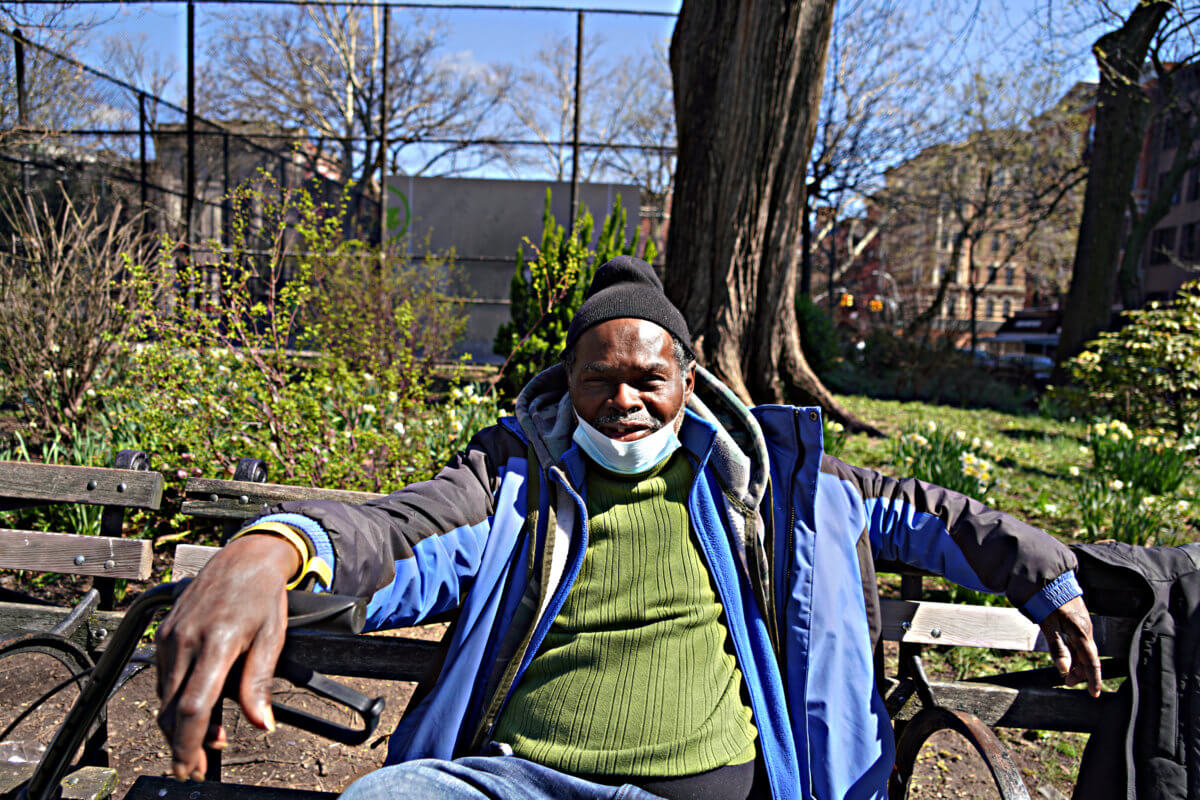
“I believe the churches should always be a place of sanctuary for anyone who’s oppressed, anyone who needs a safe place. Whether it’s refugees seeking asylum, whether it’s neighbors of ours who are living on the streets who are being come after by the state. You know, the church has historically been a safe place for people in a place that’s off limits for law enforcement. And so, it’s important for us to do that at Trinity,” Pastor Kroeze said, reflecting on the emotion of that day.
Sinthia Veev was another resident of Anarchy Row who was not only displaced but also had a hard time coping with the emotion. Retreating after the NYPD flooded into the camp, Veev wept for the loss of her tent.
However, she says she was put up in a hotel near Chinatown for a night, which gave her a respite from the street.
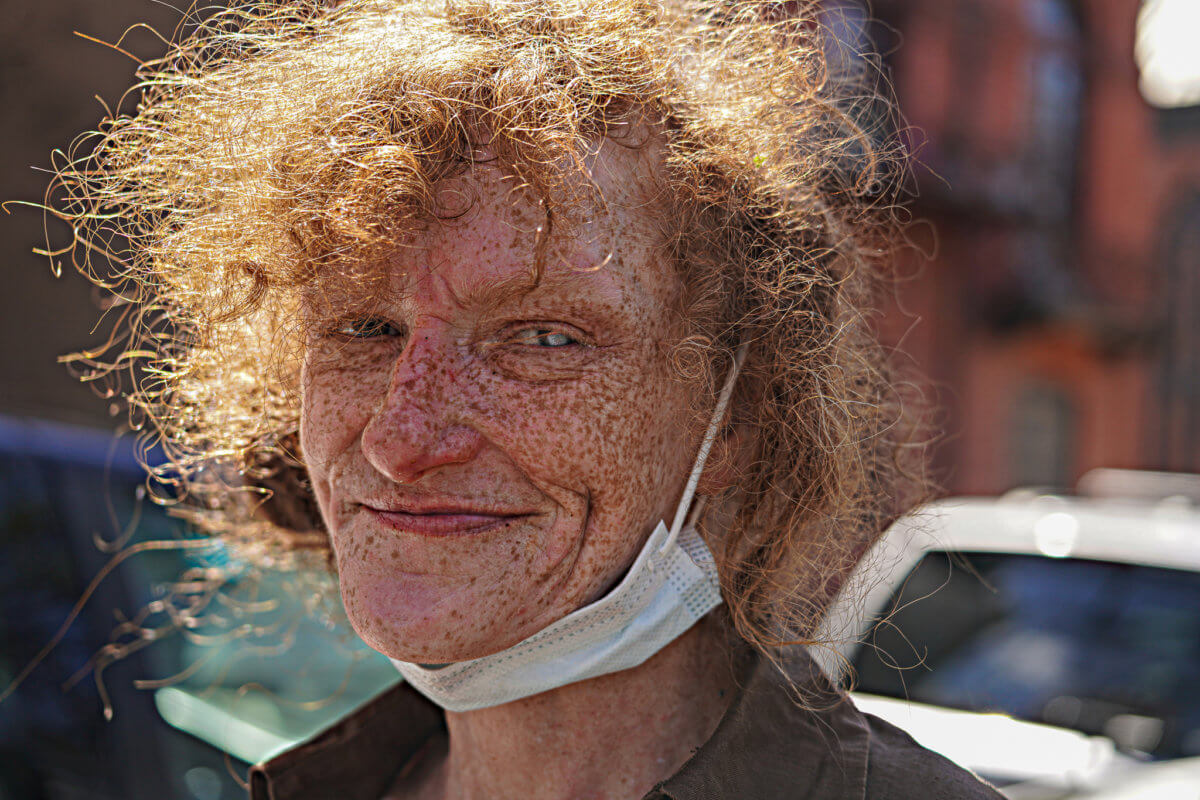
“They sent me over to the hotel for the night, I needed a bath really bad. They were nice at the hotel,” Veev said, adding that she returned to the East Village to be with Grima and Kevin in the encampment.
Rejoining the row of tents on the cusp of Tompkins Square Park, she asks herself how long before they are forced to move once more.
Veer has resigned herself to fact that it will happen again, however, she hopes it will be at least a few weeks before that time comes.
“I know they are gonna come again. I think they’re gonna wait a little while because they can only spend so much on us, we are costing them a lot of money,” Veer said, also stating that she is grateful for the support from the community. “My counselor pulled me in and shut the door and said: ‘well, you are famous now.’ I think it is good.”



